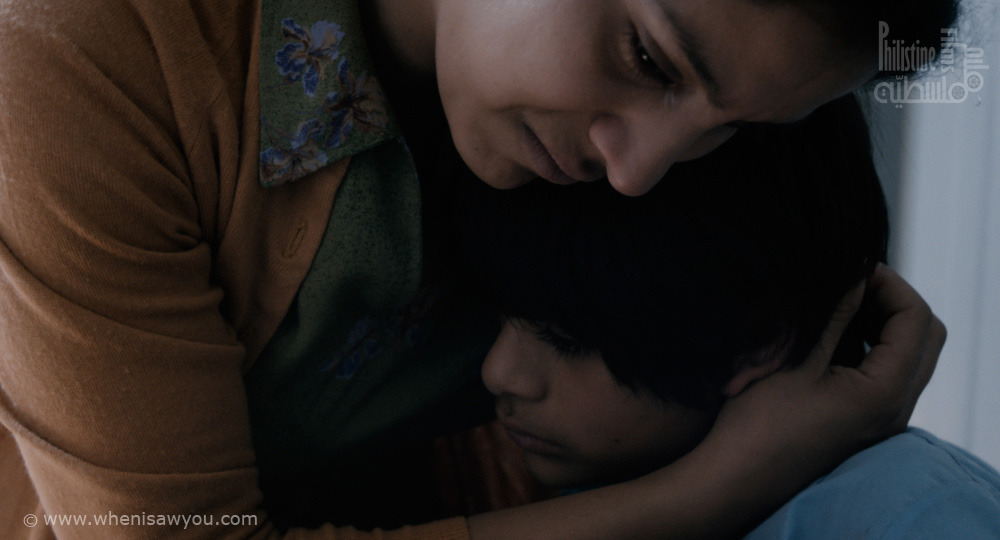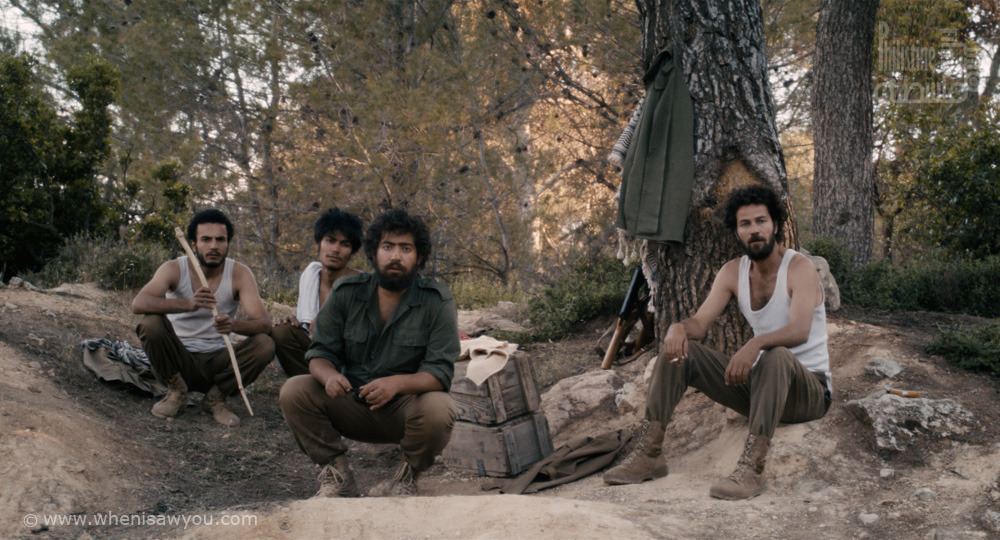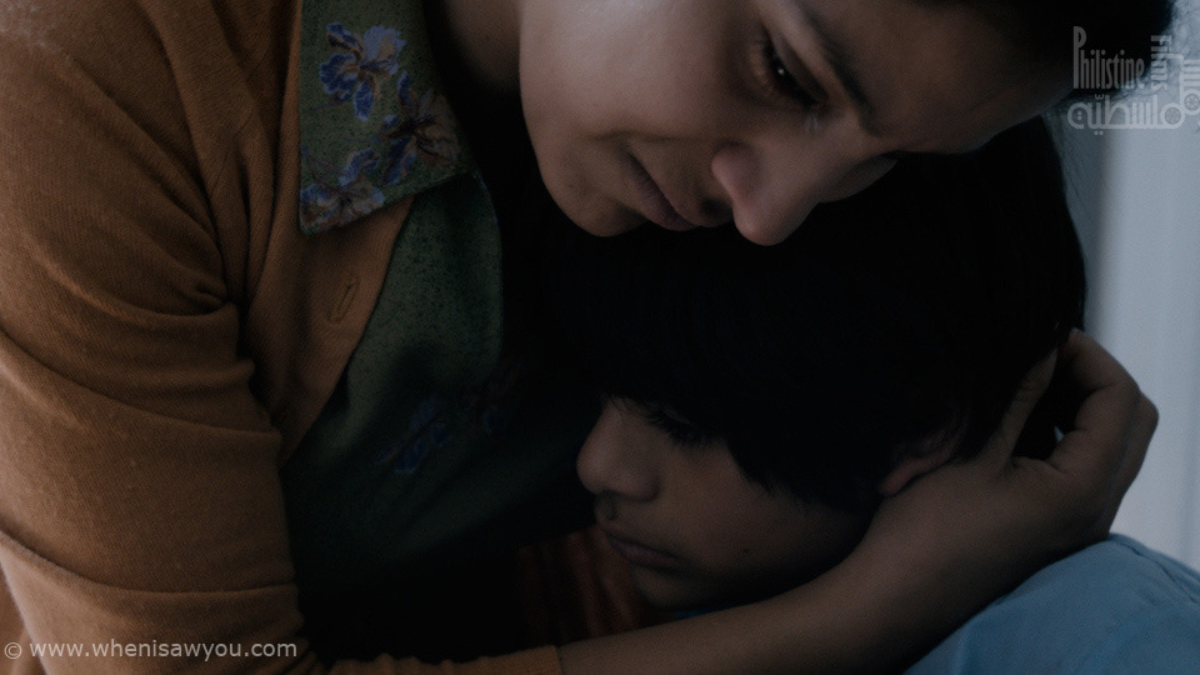WHEN I SAW YOU(2012)
Dir. Annemarie Jacir
Featuring: Mahmoud Asfa and Ruba Blal
By Azaria Wassyihun
Last Friday, I had the honor to attend a screening of WHEN I SAW YOU at the MoMA museum. The film’s director Annemarie Jacir was there to introduce the film, and answer the many questions the audience had at the end of the screening. Overall, the night went without a hitch, and attendance to the screening was a high, with people from all demographics, and all ages. Annermarie closed the screening with a poignant Q and A, since the audience had many an opinion to share.
The film is about a topic so personal to so many people, that an attempt to summarize it can be terrifying. It deals with the 65 year old conflict between Israel and Palestine, a conflict many of us know all too well. Although the film focuses on the Palestinian side, it does not attempt to demonize Israelis, nor is it’s main goal political. The film is set in 1967, a period known as the sixty-day war, during which Israel captured the West Bank of Jordan, where the story is set. This is a deeply moving piece, which follows Tarek (Mahmoud Asfa), a young rebellious boy, and his mother Ghaydaa (Ruba Blal) as they seek asylum in a refugee camp, endlessly awaiting the arrival of Tarek’s father.
The first half of the film sees Tarek and his mother as they adjust to the camp life. Although people seem welcoming, Tarek does not fit in, and is not admitted to school because he does not know how to read and write. Throughout his alienation, we see an incredible gift in Tarek, his uncanny gift with numbers, a recurring joke that provides the film with much needed levity. The film itself is not bleak in it’s intent, but the subject matter is dark, and therefore the balance of comedy and drama is dealt with expertly.

Tarek and Mother. Photo from WHENISAWYOU.com
As time goes on, the arrival of Tarek’s father seems more and more hopeless. Tarek blames his mother for their sudden departure, and he cannot get over the fact that they left him behind. In this confusion, is the representation that the conflict at hand is pointless, and that they could just go home the way they came, a point Tarek makes several times over the course of his story. Of course things are not so simple, and the mother knows that, but she also knows in her heart that Tarek is right, a thought that will be crucial in the decision she makes at the end of the film.
The refugee camp becomes too much for Tarek, who attempts once again to regain Palestine by foot back on the way they came. This time, he is determined to make it, not realizing it could be at the expense of his own life. Tarek gets lost in the desert, and falls asleep, weak and scared. He is woken by a freedom fighter named Layth (Saleh Bakri), a man Tarek had met at the camp some days later. A connection seems to form between the two, and he decides to take Tarek back to his base, where other fighters are training under the command of Abu Akram (Ali Elayan). This is where the film kicks into high gear, as Tarek is finally accepted for who he is, and for the skills he has, regardless of his shortcomings. He becomes the friend, and eventually equal of everyone in the camp, and stays with them for some time as they prepare to fight for their rights, and ultimately their lives.

- The Freedom Fighter’s Camp. Photo from WHENISAWYOU.com
If this film were to be called “political”, then the latter half of the picture dealing with the freedom fighter’s camp is the most political section of the story. Ideologies clash, personalities butt heads, and a sense of dread can be felt in between the heart warming moments. We are reminded that these are times of great hardship. Amazingly, the enemy side is not demonized, nor even portrayed for that matter. If the decision to show Israeli forces bombing refugee camps and searching for freedom fighters had been made, this would have been a very different film altogether. By omitting these aspects, the conflict becomes invalidated – that is, the fighting between the two camps is not justified. There are no sides taken, even if the film’s focus is from the Palestinian perspective. This film’s goal is precisely the opposite; it does not want to side with one camp over the other, but rather to show real human behavior in the face of such horror. No one but Tarek best embodies this notion, as the end of the film reveals.
During the Q and A, someone asked why make a film about such an old and documented conflict. In response, Annemarie replied that first of all, she had not seen many narrative films dealing with this time period, but secondly and more importantly, that the subject is still relevant today, if not even more so. The conflict has not ended, and Tarek and the rest of the refugees never returned home as they intended. Today, the film is of utmost importance in order to dictate what not to do, as well as to observe what happened, and why it happened. These questions are of course unanswerable, but asking them is all we can do when faced with adversity, and a need to overcome it.
Azaria Wassyihun is a Senior at Hofstra University pursuing a major in Film Studies. He has been interning with us since the beginning of the new year, and expressed an interest in Asian cinema, art and culture. He will be helping us all the way through AIFF 14, as our festival coordinator. In addition, Azaria will periodically review new Asian cinema films for our website.

